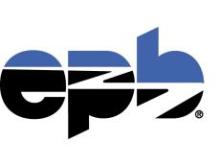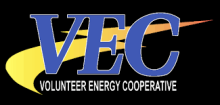
In an effort to extend the benefits of its gigabit network to lower income Chattanooga school kids, Mayor Andy Berke announced that the EPB will soon offer the "Netbridge Student Program."
WDEF reports that children will qualify for the program if they are enrolled in Hamilton County schools and are currently enrolled in the free or reduced price lunch program. Comcast's Internet Essentials uses the same eligibility criteria. Households that qualify will be able to sign up for 100 Mbps service for $26.99 per month. Details are still being discussed.
Last year, Hamilton County schools replaced a number of textbooks with iPads in an attempt to take advantage of Chattanooga's fiber asset to improve student performance. The move revealed a grim reality - that many students' access to that incredible gigabit network (or any network) stopped when they walked out of the school. Educators found that children with Internet access at home made significant strides while those without fell behind. From a December 2014 article on Internet and Chattanooga students:
In the downtown area, for example, only 7 percent of potential customers subscribe to high-speed broadband Internet. In economically depressed areas such as Alton Park and East Lake, only 15 percent of residents have high-speed Internet, according to EPB.
We spoke with Danna Bailey, Vice President of Corporate Communications from EPB, to get some details on the plan and she confirmed that the program is still in its infancy; officials at EPB plan to have it ready for students by the fall. She told is that the rate of $26.99 is what EPB must pay to bring 100 Mbps to a customer when it is unbundled. The regular rate is $57.99.
Note that the slowest speed anyone can get on the EPB Fiber network is 100 Mbps symmetrical. Unlike other providers, EPB is not offering a much slower tier to low income households. We haven't been able to verify, but we suspect that EPB is limited by state law on its pricing. State laws that prohibit municipalities from offering services below cost may be uniquely hurting low income households -- yet another reason that states should allow communities to make these decisions locally.We were curious about how EPB plans to contend with the high incidence of mobility among lower income families, which often complicates their ability to qualify for Internet Essentials from Comcast. EPB acknowledges that this may become an issue, but because they are so entrenched in the community and serve so a large segment of housing, Danna does not believe it will be a difficult problem to overcome.
They are also determined to avoid the enrollment pitfalls of Internet Essentials because, according to Danna, it defeats the purpose when people who need the program cannot enroll. It is also undecided at this point whether or not the program will be extended to other low-income households, such as the elderly or adults without children.
We applaud any community's attempt to provide fast, affordable, reliable Internet access to their less advantaged citizens. The program is new, but we hope that EPB will consider this sort of program for all those that need affordable access, rather than just a small segment. We want to see capable communities address the digital divide with force and conviction.
Local coverage from WDEF:







